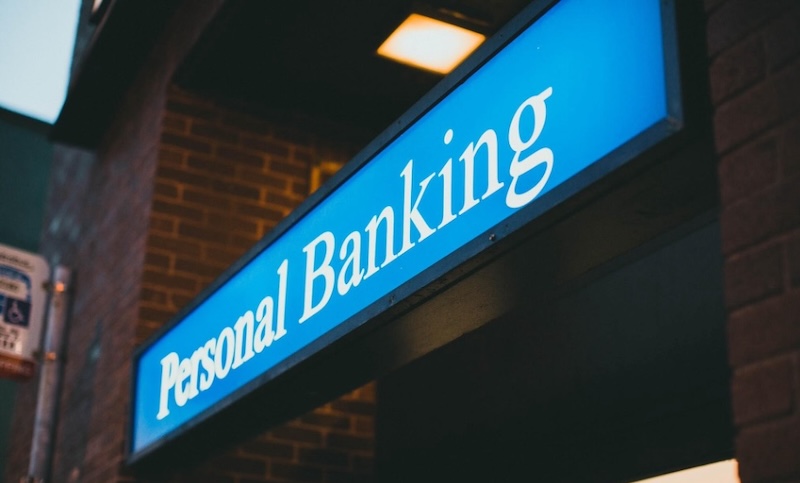Most High Risk Industries and What Makes Them Risky

Not all businesses have the same risk level. Some are viewed as “high risk,” meaning they operate in industries with a greater potential for financial uncertainty and face unique challenges because of it.
Understanding what makes an industry high risk is important for business owners and service providers specializing in high-risk businesses.
What’s a High-Risk Business?
Several factors contribute to a business being labeled high risk, including:
- Chargeback and fraud rates: High instances of chargebacks and fraudulent transactions can raise a red flag.
- International operations: Companies that engage in international trade often face greater risks due to currency fluctuations and varying regulations.
- Legal risks: Businesses dealing with products or services that have legal ambiguities are often labeled high risk.
- High average ticket sales: A business with consistently high-value transactions can be considered high risk.
- Low personal credit scores: The business owner’s creditworthiness can impact the risk assessment.
- Unfavorable business models: Some business models inherently carry higher risks, such as accounts receivable and gambling.
- Large transactions: Frequent large transactions can trigger the high-risk label.
- Financially unreliable customer base: If customers are considered high risk, it can also affect the business.
Understanding these factors is essential for businesses looking to mitigate their risk.
Consequences of the ‘High Risk’ Label
When a business is classified as high risk, it can face several challenges, including:
- Difficulty in obtaining financial services, such as traditional merchant accounts
- Higher processing fees and reserves
- Stricter underwriting and monitoring requirements
- Limited access to payment processing options
- Increased scrutiny from regulatory authorities
Fortunately, there are experts, like high risk merchant account providers, who specialize in serving businesses facing these challenges. They offer tailored solutions, expert guidance, and risk management strategies to help high risk businesses thrive in their respective industries.
15 Most High Risk Industries

Now, let’s delve deeper into some of the most common high risk industries and understand what makes them prone to risk.
1. Accounts Receivable
Accounts receivable businesses manage the money owed to a company by its customers or clients. They often offer financing solutions to businesses that have outstanding invoices.
Accounts receivable businesses can face challenges due to delayed or defaulted payments from customers. These payment uncertainties contribute to their high risk classification, making it important for them to have effective risk management strategies in place.
2. Alcohol
The alcohol industry involves everything from making to selling alcoholic beverages. It’s subject to strict regulations, including age restrictions, that govern the sale and consumption of alcohol.
The stringent regulations and age restrictions surrounding alcohol sales create unique challenges for businesses in this industry. Non-compliance with these regulations can lead to legal consequences and contribute to a high risk status.
3. Casinos

Casinos are establishments that provide facilities for gambling activities. They offer various games of chance and entertainment to customers.
The nature of gambling and the strict regulations around casinos contribute to their high risk classification. Issues related to addiction, fraud, and compliance with gambling laws make casinos a high risk industry.
4. CBD Oil
Cannabidiol (CBD) oil is a product that comes from the cannabis plant. It’s used for various purposes, including relaxation among other potential health benefits of CBD.
The legal requirements surrounding CBD products adds complexity and risk to this industry. Regulations regarding the legality and distribution of CBD can vary greatly, making it challenging for businesses to navigate this space.
5. Cryptocurrency
Cryptocurrencies are digital or virtual currencies that use cryptography for security. They enable secure, decentralized transactions and investment opportunities.
Cryptocurrencies’ rapidly evolving and largely unregulated nature can lead to high risk. Volatility in crypto markets, potential for fraud, and lack of standardized regulations contribute to the risk factor for businesses in this industry.
6. Debt Collections
Debt collection businesses are responsible for tracking down and collecting payments on overdue debts on behalf of creditors. Their primary mission is to recover funds that are owed, often through negotiation, communication, and sometimes legal processes.
The sensitive nature of debt collection and potential legal complexities make this industry high risk. Striking a balance between efficient debt recovery and compliance with debt collection laws is a constant challenge.
7. Financial Services

Financial services are businesses providing money management and investments. Everything from banks to investment firms and credit unions fall under this category.
Financial services, especially those dealing with investments, often face scrutiny due to their significant impact on the economy. Compliance with regulations, potential for financial fraud, and complex transactions contribute to their high risk classification.
8. Insurance
Insurance providers offer coverage to individuals and businesses in exchange for premiums, ensuring protection against specific risks.
Insurance is a high-stakes industry with complex financial transactions requiring high regulatory compliance. Because the insurance industry is vulnerable to false claims, it’s considered high risk.
9. Nutraceuticals
Nutraceuticals are products that fall between dietary supplements and pharmaceuticals. They often claim to offer health benefits beyond basic nutrition.
Nutraceuticals face regulatory scrutiny and legal complexities due to their claims of health benefits. Ensuring compliance with regulations while marketing products with varying degrees of effectiveness is a constant challenge.
10. Pawn Shops
Pawn shops offer loans to customers in exchange for personal property that serves as collateral. They also sell used items, including these collateral items if customers default on their loans.
Pawn shops face challenges related to collateral management, potential legal issues surrounding property ownership, and fluctuating item values, making them a high risk business.
11. Real estate

Real estate encompasses transactions related to the buying, selling, and leasing of properties, including residential and commercial real estate.
Real estate transactions often involve large sums of money and complex legalities. This complexity and the potential for disputes is what makes the real estate industry high risk.
12. Telemarketing
Telemarketing involves the sale of products or services via telephone marketing campaigns.
Challenges within the telemarketing industry that make it high risk relate to potential fraud, consumer protection regulations, and the need to maintain customer trust in an industry often associated with unwanted calls and scams.
13. Travel
The travel industry makes up businesses including travel agencies, airlines, hotels, and tour operators.
The challenges within the travel industry that make them high risk include international transactions, currency fluctuations, and regulatory compliance.
Factors like natural disasters, political unrest, and public health crises can also significantly impact the industry’s stability.
14. Firearms
Firearm businesses sell, distribute, and manufacture firearms and related accessories.
The sale of firearms is highly controlled and subject to significant scrutiny due to the potential consequences of improper firearm transactions, thus they are considered high risk.
Regulatory compliance and security measures are of utmost importance in this industry.
15. Multi-level Marketing
Multi-level marketing (MLM) companies operate on a business model that relies on recruiting participants to sell products or services and earn a commission.
MLM companies often face legal complexities and scrutiny due to their business model, which can resemble pyramid schemes if improperly structured. Compliance with laws and ethical practices are important in navigating these high risk challenges.
Conclusion
Understanding the complexities of high risk industries and their challenges is important for business owners, entrepreneurs, and service providers alike. It helps businesses make informed decisions, implement risk mitigation strategies, and adapt their operations to navigate unique high risk challenges effectively.
With the right partner and a well-informed approach, high risk businesses can thrive despite the challenges they face.




















